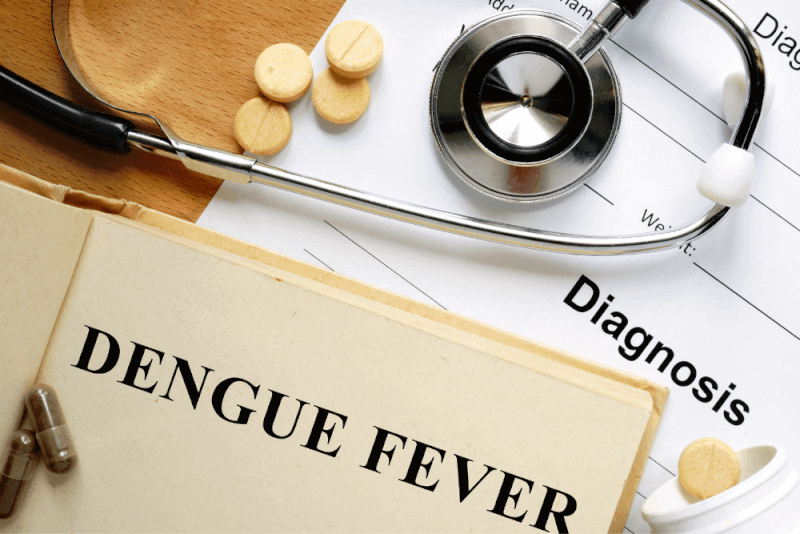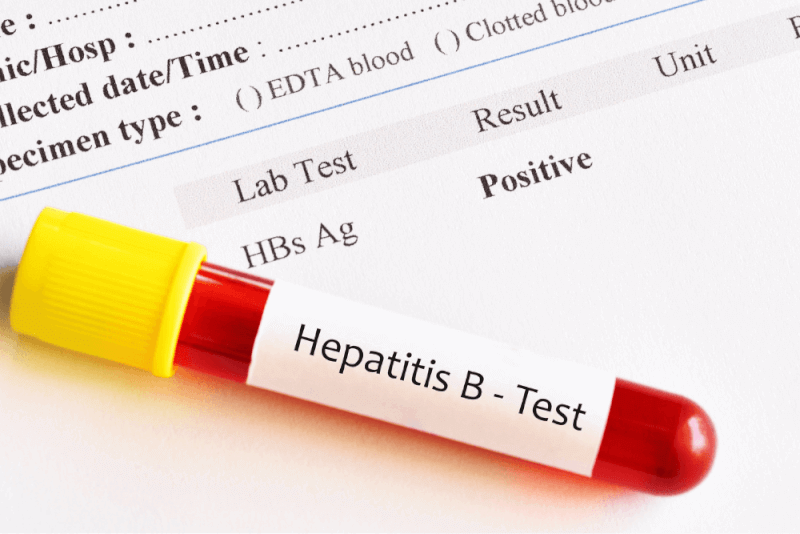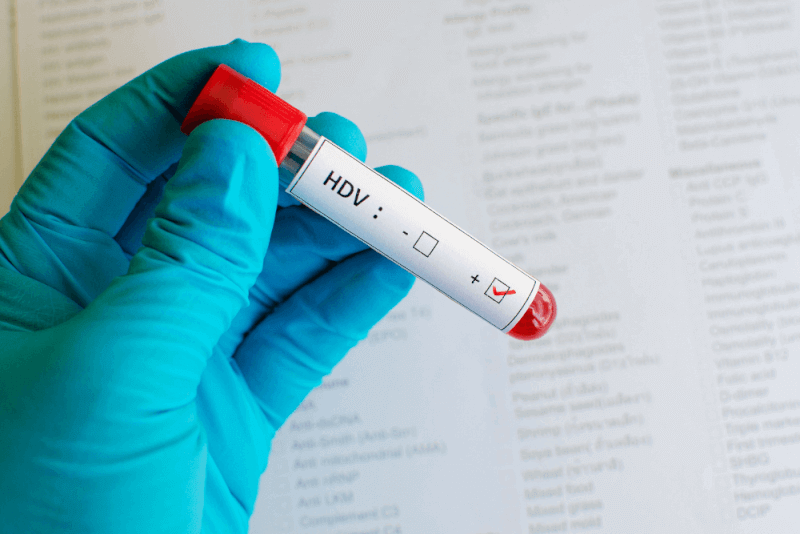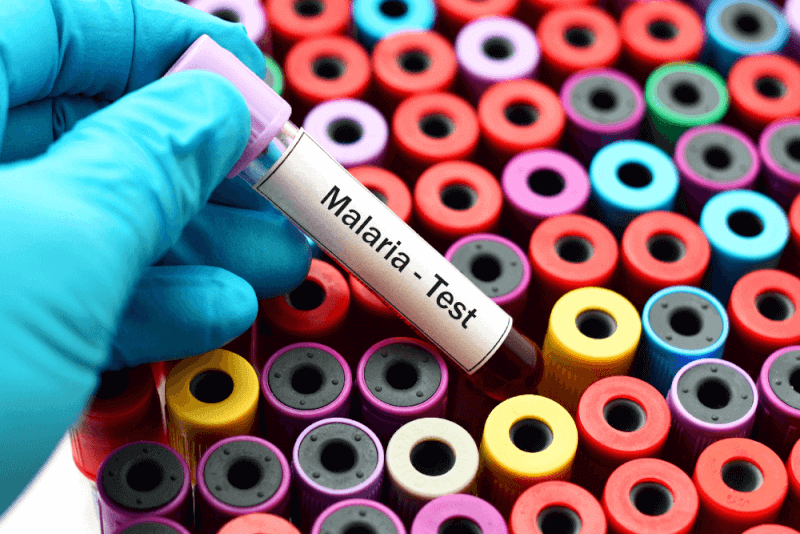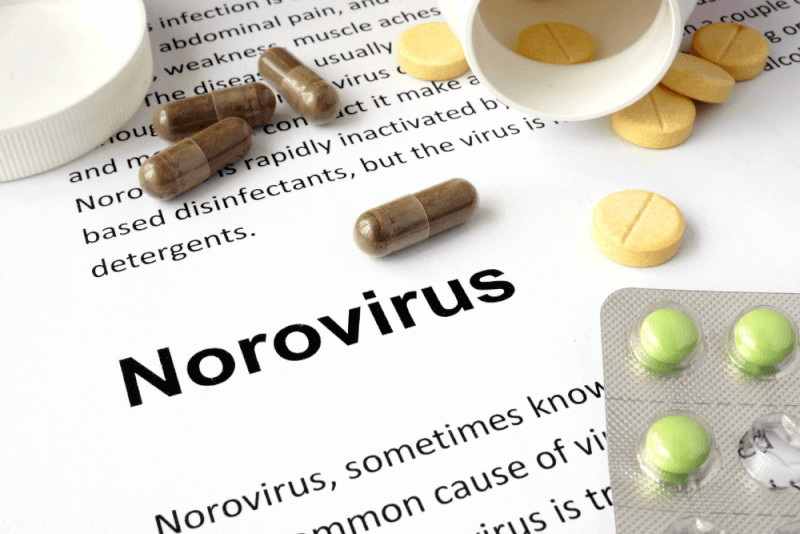30-Second Summary
- Dengue fever, commonly found in tropical and subtropical regions worldwide, is a mosquito-borne illness.
- The severe form of dengue is also referred to as dengue hemorrhagic fever.
- Symptoms of the disease appear 4 to 10 days after a mosquito bite and the illness lasts between 3 to 7 days.
- The disease does not transmit directly from person to person. However, pregnant individuals with dengue fever may transmit the disease to their baby during childbirth.
What is Dengue Fever?
Dengue fever is commonly seen in tropical and subtropical regions around the world and is transmitted by mosquitoes. The severity of the disease can vary, with mild cases showing flu-like symptoms. The severe form is also called dengue hemorrhagic fever.
It can lead to severe bleeding, sudden drops in blood pressure, and death. Severe dengue usually occurs in individuals who have been infected more than once. Dengue is not transmitted from person to person. However, if a pregnant woman is infected, she can transmit the disease to her baby.
Causes of Dengue Fever
Dengue fever is caused by one of four dengue viruses, transmitted through the bite of an infected mosquito. When dengue-carrying mosquitoes bite humans, the viruses enter the bloodstream. They then replicate within the human body, triggering an immune response.
The reaction of the immune system, along with the increase in virus population, causes patients to feel ill. The most significantly affected tissues in the body are the blood vessels.
The virus can cause the destruction of some blood vessel parts. This, combined with certain chemicals produced by the immune system, leads to blood leakage from the vessels and internal bleeding. These are life-threatening symptoms of severe dengue fever.
Symptoms of Dengue Fever
It is known that dengue fever generally does not cause any symptoms. However, in individuals who have not developed antibodies against the virus, some symptoms can occur, including:
- Skin rash
- High fever, usually around 104 degrees Fahrenheit
- Pain in muscles, bones, and joints
- Severe pain behind the eyes
- Nausea
- Vomiting
Symptoms of the disease appear 4 to 10 days after a mosquito bite and the illness lasts between 3 to 7 days. One in twenty people with dengue fever experience severe dengue as the initial symptoms begin to diminish.
Severe Dengue Fever Symptoms
Symptoms of severe dengue fever worsen to life-threatening levels. Warning signs of severe forms of the disease appear within 24 to 48 hours after the fever subsides.
It is crucial to monitor these signs as severe dengue can be fatal. If any of the following symptoms are observed, it is essential to seek immediate medical attention at the nearest emergency service.
- Abdominal pain
- Frequent vomiting
- Vomiting blood
- Blood in stools
- Nosebleeds
- Gum bleeding
- Extreme fatigue
- Restlessness
- Irritability
- Bleeding resembling bruises under the skin
- Difficulty or rapid breathing
- Blood in urine
Dengue Fever Diagnosis Criteria
Dengue fever is diagnosed through a blood test, which also identifies which of the four virus strains is present. However, diagnosing dengue is not always straightforward as its symptoms resemble those of other diseases like Zika, malaria, and typhoid fever. Therefore, during examinations, questions about medical and travel history are asked to determine whether there has been contact with mosquitoes.
Treatment Methods for Dengue Fever
There is no medication specifically designed to treat this virus. Thus, experts provide recommendations on managing symptoms and determining whether emergency care is needed.
Staying hydrated is vital during recovery from dengue fever. If any of the dehydration symptoms listed below occur, medical attention should be sought immediately.
- Decreased urination
- Little or no tears
- Dry mouth or lips
- Lethargy
- Confusion
- Cold and clammy extremities
Over-the-counter pain relievers can help reduce muscle pain and fever. However, dengue patients should avoid medications like aspirin, ibuprofen, and naproxen sodium as they can increase the risk of bleeding complications.
For severe dengue cases, necessary treatments include:
Hospital care is essential for such patients. During hospitalization, regular monitoring of blood pressure is required. Blood transfusions may be necessary to compensate for blood loss, and intravenous electrolyte supplements should be administered to prevent electrolyte imbalances.
Transmission of Dengue Fever
Dengue fever is spread by Aedes mosquitoes. When a mosquito bites a person infected with dengue fever, the virus is transmitted to the mosquito. The virus then spreads when the infected mosquito bites a healthy individual. Additionally, the disease does not spread directly from person to person. However, individuals infected with dengue fever during pregnancy may pass the virus to their baby during childbirth.
Is Dengue Fever Fatal?
Dengue fever is not fatal when it causes mild symptoms. However, severe dengue fever occurs in one out of every twenty patients following an infection. Severe dengue can lead to internal bleeding and shock, which may be fatal.
Can Immunity Be Gained Against Dengue Fever?
Once infected, it is possible to develop immunity to the specific strain of the dengue virus that caused the infection. However, since there are at least four versions of the virus, the immunity process becomes complex.
Antibodies in the body are produced uniquely for specific pathogens. As a result, antibodies act like a key fitting a specific lock, targeting only certain pathogens. After contracting one of the four strains of the dengue virus, antibodies are produced against it. However, if a different strain of the dengue virus enters the body, these antibodies may capture the virus and pull it into the cells.
Even so, for reasons not fully understood, the virus is not completely eliminated. Instead, it remains inside the cells, leading to infection and causing the disease to become more severe.
How to Prevent Dengue Fever?
The two main ways to prevent dengue fever are avoiding mosquito bites and getting vaccinated.
Mosquito Protection
The best way to avoid mosquitoes is by protecting yourself from mosquito bites. Here are some ways to protect yourself:
- Using mosquito repellents
- Covering exposed skin, especially during nighttime when mosquitoes are more active
- Removing standing water and filling low areas where water can collect
- Repairing holes in mosquito screens and keeping windows and doors closed when possible
- Using mosquito nets at night in areas where the disease is prevalent
- Pregnant individuals avoiding travel to regions where dengue is widespread
- Checking for disease outbreaks in the destination area before traveling
Dengue Fever Vaccine
The dengue fever vaccine is recommended for individuals who have previously had the disease. It helps reduce the risk of severe dengue if a different strain of the virus is contracted in the future. Vaccination is not recommended for individuals who have never had dengue fever.
Getting vaccinated after the first infection can reduce the risk of severe dengue. Before receiving the vaccine, a blood test is usually conducted to confirm past dengue infection by checking for its symptoms. Additionally, the vaccine is not available for everyone.
Complications of Dengue Fever
Dengue fever complications particularly affect individuals who contract the disease during pregnancy. Complications may include premature birth and low birth weight.
In severe cases of the disease, life-threatening complications such as internal bleeding and organ damage may occur. Blood pressure can drop to dangerous levels, causing shock. In some cases, severe dengue fever may result in death.


